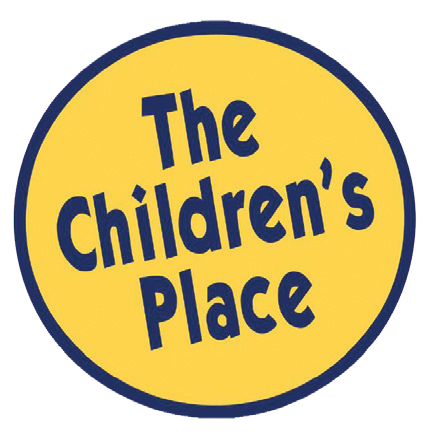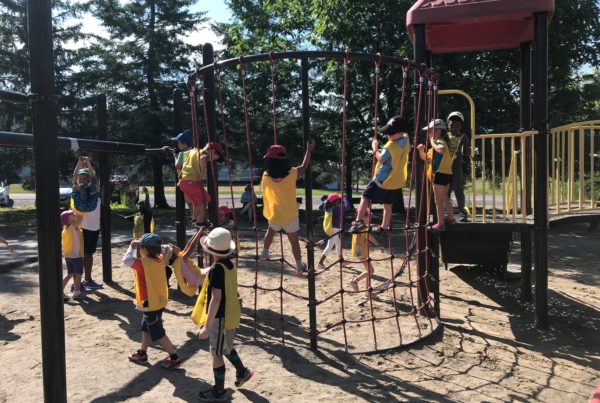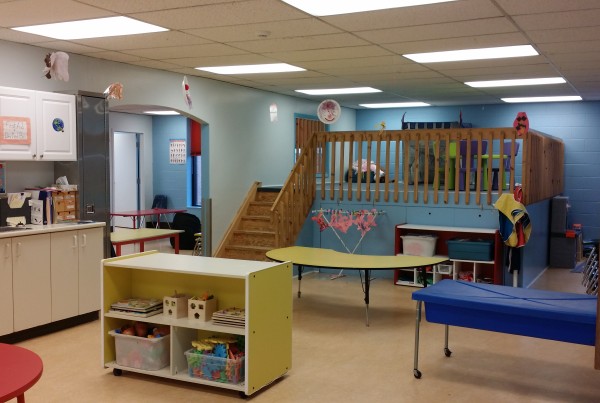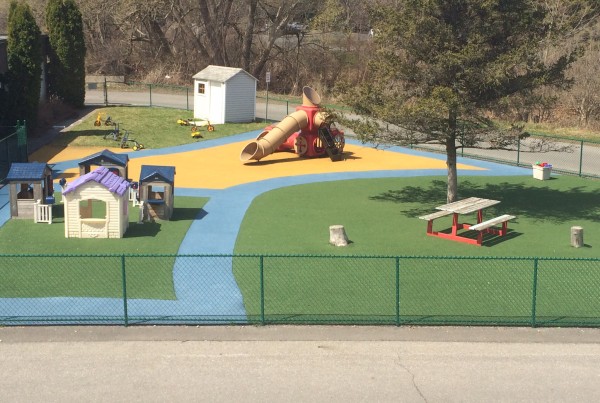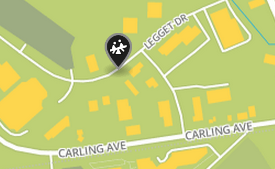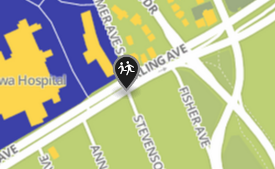Who Are We?
The Children’s Place is a non-profit organization staffed by dedicated, creative Early Childhood Educators, operated by experienced Managers and governed by a parent/community Board of Directors. We have been in operation since 1981 and were the first licensed childcare center in the City of Ottawa to provide: flexible care, non-traditional hours, 24/7 a week care and parent’s night out.
We would like to thank The City of Ottawa and The Ministry of Education for their continued support and funding of childcare within our community and The Children’s Place programs.
The Children’s Place Program Statement
The Children’s Place programs create rich learning environments for children which helps towards reaching their full potential. This approach to learning is in alignment with the Ministry of Education’s How Learning Happens, a resource developed by the Ministry of Education to promote a shared understanding of what children need, as well as opportunities for growth and success in their Early Years.
The Children’s Place Child Care Objectives:
- To provide a warm, caring environment to develop children’s creative, intellectual, emotional, social and physical needs
- To plan for and create positive learning environments and experiences, that support a child’s individual needs, learning and development
- To provide a safe environment that is part of a natural progression between home and school
- To ensure children are cared for, and always supervised
- To employ staff that are experienced and trained to provide the best care and enrichment for the children in our care
- To provide a communication system that ensures parents and staff have ongoing contact throughout a child’s time at our center
We at The Children’s Place are committed to delivering flexible, high quality childcare that is progressive and responsive to the changing needs of our families. Our programs are positive and nurturing environments that provide all children with supported learning experiences that enhance their individual social, intellectual, physical and emotional development. We create rich opportunities for children to flourish and reach their individual potential by supporting learning that occurs in all aspects of a child’s daily routine which encompasses a balance of indoor and outdoor play, as well as active play, rest, and quiet time.
Children are competent, capable, curious and rich in potential
Play is the cornerstone of our curriculum. While children are engaged in play, they are learning and developing many skills. We base our program learning experiences around play. The value of play in early childhood is supported by theory and research, it is the basis for which quality childcare programs evaluate success and therefore it is reasonable for us to expand our philosophy on children’s learning into an inclusion of academic achievement, without erosion on child driven curriculum and choices.
Play is the platform for inquiry and exploration and essential to healthy social and cognitive development of children. We view children as competent, capable of complex thinking, curious, and rich in potential. Through play and inquiry, young children practice ways of learning and interacting with the world around them that we hope they will apply throughout their lives. The Children’s Place curriculum takes a child initiated, adult supported approach that focuses on play based learning, allowing the child to take the lead, and then focusing on his or her interests through intentional observation, interaction and engaged communication. When this approach to learning takes place along with staff’s understanding of child development, each child’s learning and individual development is supported and as a result the child’s competence, capacity and potential are maximized.
The Children’s Place optimizes their facilities to offer gross motor space for indoor and outdoor activities. Many opportunities indoor and outdoor are offered to promote gross motor skills and support a healthy physical lifestyle through safe risky play. The Children’s Place incorporates music and movement into programs and encourage team building skills through various games and turn taking activities.
The Children’s Place provides daily outdoor play spaces that allow opportunities for:
- Active and restful play
- Loud and quiet play
- Individual and group play
- Develop large muscle strength and skills
- Interactions with nature
Our Program Mission:
To provide quality of educational care for your child(ren) during their time in our care, with an emphasis on:
- Developmental growth opportunities
- Self-help skill training
- Individualism
- The right to choose
- Action/consequence
- Communication
- Pre-readiness skills for entrance to school
It is our professional duty to provide each child with the opportunities they need to prepare for future challenges and independent life skills. Educators follow the lead of the child. Planned learning experiences are adapted by children as they plan and explore, bringing new materials and ideas through their play. Educators also adapt this planned program to support children’s spontaneity abilities and interests.
Learning Experiences:
Social-to provide the opportunity to meet new friends. To learn acceptance of them and by them and to have fun.
Physical-to provide the opportunity to play with materials that will help to develop muscle growth in fine and gross motor skills coordination, with manipulative activities.
Intellectual-to provide an environment with adequate materials to challenge each child at a level that is comfortable to them, that allows them to participate on a non-competitive basis, to arouse their curiosity, enthusiasm, and creativity.
Cultural-to provide resources for each child which will teach them about diversity in our community/society and will assist them in the understanding of different people, different cultures, and differing values.
Emotional-to model for the children in our care respect for others. To provide opportunities that will teach self-help, self-respect, self-concept, diversity, and problem-solving skills.
Nurturing-to provide children with affection and caring, basic needs, and safety. To teach them how to nurture.
Other-to provide children with resources and tools that will meet changes in our society and to recognize the need for us as educators to keep current, to be pro-active on behalf of children and for the work we do, and to be positive in our teachings by introducing opportunities that facilitate skills through limited screen time such as math, literacy, cognitive and concept knowledge.
Our goals for children, consistent with the Ministry of Education pedagogy, include the following:
- Every child has a sense of belonging when he or she is connected to others and contributes to their world.
- Every child is developing a sense of self, health, and well-being.
- Every child is an active and engaged learner who explores the world with body, mind, and senses.
- Every child is a capable communicator who expresses himself or herself in many ways.
Health, safety, nutrition and well-being of children
We know that children flourish in all areas of development when they are in supportive, caring and responsive relationships with adults whose focus is on the health, safety, nutrition and well-being of the child. This is the foundation of quality child care. Our goal is for all children to develop a sense of self, health and well-being that they can bring with them into their later years.
As a licensed child care operator, The Children’s Place strives to exceed health and safety requirements of the Ministry of Education and local government bylaws.
Educators interact with children during meal times, to support their intake of adequate and nutritious foods. Mealtimes provide a unique opportunity to build strong relationships and appreciation for new and different foods. Menus are comprised of an assortment of healthy food as identified in the Canada Food Guide. Providing children with healthy eating choices, helps to pave the path to life-long skills for making healthy choices to nourish their bodies for optimal health and development. Mealtimes are served family-style, creating positive eating environments that encourage social and self-help skills.
Relationships among children, families, staff and community partners
We believe that child care is a shared responsibility between parents and The Children’s Place educators. We value parent engagement in the area of their child’s development as well as program development. We view our relationships with families as teachers, constructing knowledge and working together in the exchange of information about their child’s language, culture, interests, and development, so their child’s experience, is greater than if doing it alone could provide.
The Children’s Place fosters engagement with our communities, through neighbourhood walks, and offsite field trips. For example, not limited to: libraries, parks, museums and indoor/outdoor sport facilities. The Children’s Place supports and participates in programs offered by facilities who care for the elderly. Our children will and have engaged in various cooking programs and story time with the different facilities around our city.
The Children’s Place is experienced in providing inclusive programming for all children. When working with children with special needs, we work closely with parents and community partner organizations, to putting the appropriate support and resources in place for optimum success for the child.
Positive self-expression, communication and self-regulation
We seek Educators who are competent and capable, curious, and rich in experience, as well as knowledgeable, caring, reflective, and resourceful professionals who bring diverse social, cultural, and linguistic perspectives to our programming. Staff collaborate with others to create engaging environments and experiences to foster children’s learning and development. Positive learning environments and experiences, focused on active play-based learning, encourage children’s communication, self-expression and self-regulation. Through interaction with the children and by demonstrating problem solving, responsibility, accountability and independence we teach the children life skills in preparation for their next step in growing.
The Children’s Place educators encourage child’s developing sense of self, and their ability to see themselves as capable communicators, able to manage their emotions and behaviour. Our Programs are run with the basic idea of teaching children that they do have a say in what they do, how they do it and when they do it. They are further taught that their choices may have consequences and they can control those consequences by the choices they make. Our programs are designed to allow children to move from learning centre to learning centre, based on their own level of accomplishment. We teach them to identify the skills they have and the skills they still need to learn and develop.
We want children to be able to make choices when they are ready for that next challenge. Staff will not selectively teach all children the same thing, nor expect all children to comprehend the teaching at the same level or speed. Staff will make available opportunities to meet a successful conclusion for each child development regardless of age.
Recognizing that children have varying behaviours, it is the goal of staff at The Children’s Place to work with these behaviours in a positive and supportive manner. This will be done in a way that respects the rights of the child and continues to teach the child that they have choices. We are individuals with a need to control our own lives, in at least some things. This recognition and acceptance of “Own Behaviour” benefits our ability to negotiate positive outcomes, reinforce acceptable behaviors and reduce stress related to conflict.
Own Behaviour
Children normally know when they are doing wrong. How we deal with their “own behaviour” and adjust our attitudes to their behavior can allow us to be fair and consistent with all of the children. Thus, reducing the possibility of our making a judgment of whether they “knew”, therefore, we hope that they will be more accepting of our interaction when we don’t approve of their behaviour.
By getting into the habit of reviewing our own attitudes to a child’s behaviour, first we develop the habit of consistency in how we deal with and react to behaviours. We also become more aware of the frequency in the same child and because we review our attitudes, we can become more successful in recognizing why this behaviour may be occurring i.e. tired, stress, provoked, sick
Parent engagement and communication
The Children’s Place encourages an open-door policy. Families are always welcome. We practice open communication, so that information gets shared to families, through daily observations, family events, social media updates, and ongoing website management. We are committed to delivering flexible, affordable, high quality childcare that is progressive and responsive to the changing needs of our families, which we believe, gives a parent peace of mind while their children are in our care.
Community partners
We view the community as a valuable resource and our educators plan learning opportunities to engage the community in our programs. We seek out opportunities to share our knowledge and to learn from others in the community. We do this through learning and practical work experience, in the areas of education, through student placement and training, and we extend opportunities for youth to develop employment skills and traits.
Supporting staff in continuous professional learning
The Children’s Place recognizes the importance of continuous professional learning for our staff. During regular meetings, staff have ongoing discussions about their own professional development, and are provided with various professional opportunities in house, and in the community for professional growth. This training supports our staff, and enhances their continued ability to deliver high quality experiences and care for children.
Our Educators are supported in their ongoing learning through the College of Early Childhood Educators’ self-reflective and self-directed framework for continuous professional learning. The Continuous Professional Learning program is designed to help RECEs reflect, plan for and document their professional learning in a meaningful way.
As part of our continuous learning approach, all teachers, regardless of previous education and experience, are supported in continuing the study of and training in childcare techniques and Early Childhood Education practices. Apprenticeship programs are offered for an ECE certificate by the Ministry of Training, Colleges and Universities of Ontario. Our Organization offers financial and mentoring support to promote this process as a means of completing an ECE diploma while still working.
Formal professional learning is vital, but we also know that the most central professional growth happens day-to-day, as our staff co-learn alongside the children and each other as self-reflective professionals.
Documenting and reviewing the impact of The Children’s Place learning program
The Children’s Place educators, are professionals, who connect with children, endeavor to provide safe environments, plan and extend play, scaffold learning, reflect on successes and document the children’s play and learning. Our educators get involved in play with children to support development, challenge thinking, and extend learning. The documented play is shared with parents on a regular basis.
Staff plan for and create positive learning environments and experiences in which each child’s learning and development is supported. Educators reflect and assess their program and environment daily to aid in meeting the individual needs of the children and the group ensuring that their environment is set up according to the interests of the group.
Observation and documentation is a way for our program staff to discover how children think and learn. It is through daily observations of the children during play that staff identify children’s interests, plan with the children and develop future ideas for programming. In this way, we extend learning that can lead to a child’s deeper investigation with materials and the environment.
The Children’s Place Multi-Year Accessibility Plan
Commitment:
The Children’s Place mission is to support children, families, and staff through high quality, inclusive services. We strive, to provide services that respect the dignity and independence of people with disabilities. We are committed to giving people with disabilities the same opportunity to access our services and allowing them to benefit from the same services, in the same place and in a similar way as others.
The Children’s Place is committed to preventing, removing barriers and meeting requirements under the Accessibility for Ontarians with Disabilities Act, 2005 (“AODA”) to persons with disabilities in the areas of information and communications, employment, and the design of public spaces.
This plan outlines our strategy to prevent and remove barriers to address the current and future requirements of the AODA, and to fulfill our commitment by:
- Establish, review, and update this Plan.
- Post the Plan on our website www.childrensplace.on.ca.
- Provide the Plan in an accessible format, upon request; and
- Review and update the Plan at least once every five (5) years.
CUSTOMER SERVICE STANDARDS
Training Action Taken effective January 1, 2012:
- Review of the purpose of the AODA and the requirements of the Customer Service Standard.
- How to interact and communicate with people with various types of disabilities.
- How to interact with people with disabilities who use an assistive device or require the assistance of a service animal or a support person.
- How to use the alternative means to help provide services to people with disabilities.
- What to do if a person with a disability is having difficulty in accessing our services and policies, practices and procedures relating to the Customer Service Standard.
- Provide alternatives to communicating with customers if telephone communication is not suitable to their needs.
- Ensure accommodation to clients serviced by a guide dog or other service animal.
- Where a person with a disability is accompanied by a support person, the support person is accommodated.
- Feedback is encouraged from persons with disabilities through multiple accessible ways. Any feedback from customers will be documented.
EMERGENCY PROCEDURE, PLANS OR PUBLIC SAFETY INFORMATION
Action Taken effective January 1, 2012:
- Any emergency procedures plan and information implemented made available to all staff and clients will be available in accessible formats.
WORKPLACE EMERGENCY RESPONSE INFORMATION
Action Taken effective January 1, 2012:
- Individualized workplace emergency response information procedures have been developed for Employees with disabilities as required.
- Review our ability to assist specific disabled employees help them evacuate the workplace during an emergency.
- Review and assess of general workplace emergency procedures and any individualized emergency plans regularly.
- The Executive Director will ensure that individuals who require workplace response information are updated regularly.
TRAINING
Training Action Taken effective January 1, 2015:
- Appropriate training on the requirements of the IASR and on the Ontario Human Rights Code as it pertains to persons with disabilities will be provided to employees.
- Training has been completed with current employees, and all new or potential employees.
- Training will be provided on an ongoing basis where there are any changes to legislation.
INFORMATION AND COMMUNICATION STANDARDS
Action taken effective January 1, 2014:
- If new internet websites are designed, we will ensure that the websites and web content conform with the World Wide Web Content Accessibility Guidelines (WCAG) 2.0, initially at Level A and increasing to Level AA
Action taken effective January 1, 2015:
- Accessible formats and communication support will be provided or arranged in a timely manner that accounts for the person’s needs due to disability, upon request.
- The public will be notified through the Centre website about the availability of accessible formats and communication supports.
Planned Action effective January 1, 2021:
- Internet websites and web content will conform with the World Wide Web Content Accessibility Guidelines (WCAG) 2.0, initially at Level A and increasing to Level AA.
EMPLOYMENT STANDARDS
Action taken effective January 1, 2016:
Recruitment, Assessment and Selection
- A review and modify existing recruitment policies, procedures, and processes to ensure fair and accessible recruitment processes, if necessary
- Employees are notified as well as the public about the availability of accommodation for job applicants with disabilities during the recruitment process. Notification will be provided in an accessible manner, if necessary.
- Job applicants who are individually selected to participate in an assessment or selection process will be notified of available accommodation upon request. Notification will be provided in an accessible manner, if necessary.
- If a selected applicant requests accommodation, the Centre will consult with the applicant and arrange for suitable accommodation in a manner that considers the accessibility needs, up to the point of undue hardship as defined by the Code.
- All successful applicants will be notified of the workplace policies for accommodating employees with disabilities, and notification will be provided in an accessible manner, if necessary
- As an employee of a childcare centre, we are responsible for knowing legislation; Child Care and Early Years Act 2014. All employees must be both mentally and physically fit, and able to meet all needs of the children in our care and perform all duties of their job they have been hired for. We work with a ratio requirement with the youngest ages of the vulnerable sector.
Informing Employees of Supports
- Current and new employees will be informed of workplace policies that support, including accommodation policies that consider needs due to disability.
- New employees will be informed of workplace policies that support disabilities as soon as practicable.
- Employees will be informed of any changes to existing workplace policies with respect to accommodating disability.
- Upon request, we will provide or arrange for suitable accessible formats and communication supports for information needed to perform position and general employee information, in suitable accessible formats or communication supports.
Documented Individual Accommodation Plans and Return to Work Processes
- Policies include steps to take to accommodate an employee with a disability and to facilitate a return to work after absenteeism due to disability.
- Individual accommodation plans for employees with disabilities will developed if necessary.
- The process for developing each individual accommodation plan for an employee with a disability requiring accommodation will be in accordance with the IASR.
- Current policies on accommodation will be reviewed and modified to integrate the process for developing written individual accommodation plans for Employees with a disability, if necessary.
- If applicable, individual accommodation plans will include information regarding accessible formats and communication supports, individualized workplace emergency response information and any other accommodation.
- Individual accommodation plans are updated, as necessary.
- Return to Work process for Employees absent due to disability and requiring accommodation.
Performance Management and Career Development
Action taken effective January 1, 2015:
- We will review, assess, and modify, if necessary, existing policies, procedures and practices on performance management, career development and redeployment to ensure compliance with the IASR.
- We will consider the accessibility needs of employees with disabilities, and as applicable, their individualized accommodation plans, when assessing performance, management, career development and advancement, and redeployment.
- Supervisor/Designates who conducts performance management and career development and advancement meetings and make redeployment decisions will be trained on accounting for accessibility needs.
ACCESSIBILITY STANDARDS FOR THE BUILT ENVIRONMENT
Action taken effective January 1, 2017:
- Any of the following public spaces that are newly constructed or redeveloped will meet the accessibility requirements under the IASR
- Outdoor public eating areas
- Outdoor play spaces and paths of travel
- Accessible parking
- Service-related elements (e.g., service counters, fixed queuing lines and waiting
Accessibility Compliance Reporting
- File an Accessibility Compliance Report by December 31,2014 COMPLETED
- File an Accessibility Compliance Report by December 31,2017 COMPLETED
- File an Accessibility Compliance Report by December 31,2020 Extension to June 30/2021
- File an Accessibility Compliance Report by June 30,2021 COMPLETED
- File an Accessibility Compliance Report by December 31,2023
